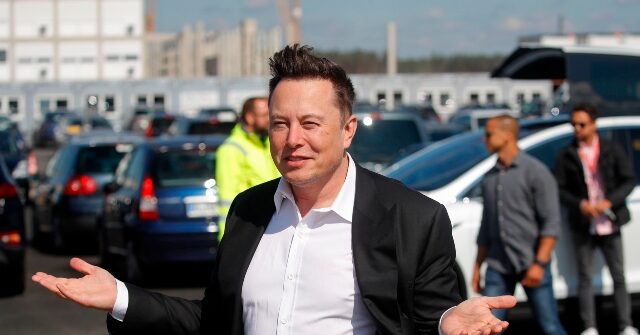A tragic incident involving a Tesla on the Garden State Parkway has led to a lawsuit against Elon Musk’s company. The lawsuit is filed by New Jersey resident Max Dryerman, whose family tragically perished in a crash on September 14, 2024. The vehicle, a 2024 Tesla Model S, veered off course, impacting a guardrail and bridge support.
Dryerman’s lawsuit claims that the Tesla’s design was “defective and unreasonably dangerous,” contributing to the fatal accident. Despite the car being equipped with advanced safety technologies, it failed to prevent the crash. The legal filing was made in a Camden federal court, seeking accountability from Tesla for the devastating loss.
The lawsuit highlights a 2016 statement by Elon Musk, where he suggested the autopilot feature was “probably better” than a human driver. Dryerman argues that this claim might have misled his father, who was operating the vehicle during the crash. The complaint underscores the failure of the car’s safety systems in maintaining lane discipline and avoiding collisions.
All three family members, despite wearing seatbelts, did not survive the crash, raising questions about the vehicle’s safety features. The suit contends that the Tesla Model S failed in critical areas like lane-keeping and emergency braking. Requests for comment from Tesla have not been answered by media outlets such as NJ.com and Reuters.
Tesla’s autopilot system has been the subject of previous controversies and legal challenges. Breitbart News has covered similar lawsuits, questioning the safety assertions made by Tesla about its autopilot and full self-driving (FSD) capabilities. These claims are central to the lawsuit filed by Dryerman.
In another case, a family sued Tesla after a 2019 crash on Interstate 880 involving a Tesla Model 3. The vehicle, reportedly on autopilot, rear-ended another car, leading to a tragic rollover. The trust in Tesla’s autopilot system was a key factor in that lawsuit as well.
In that incident, the driver, Romeo Lagman Yalung, believed the autopilot was safer than manual driving. The lawsuit noted that the Tesla maintained a speed of 70 mph, even as it approached slower traffic, leading to the crash. Such incidents continue to fuel debates over the safety of autonomous driving technologies.
Dryerman’s lawsuit against Tesla echoes similar concerns, as families seek accountability for accidents involving these vehicles. The reliance on autopilot and its promoted safety benefits are often scrutinized in these legal battles. As these cases gain attention, they highlight the broader implications of autonomous vehicle technology.
Tesla’s autopilot feature has been a selling point for the company, marketed as a safer alternative to human drivers. However, incidents like the ones involving Dryerman’s family and others challenge these assertions. The debates surrounding Tesla’s technology are far from over.
The broader discussion on autonomous vehicles also touches on regulatory standards and consumer trust. How these technologies are tested and promoted can have significant impacts on public perception. The outcomes of these lawsuits may influence future regulatory measures.
While Tesla continues to advocate for the safety of its vehicles, each incident brings renewed scrutiny. The legal challenges faced by the company are part of a larger conversation about the role of technology in transportation. As these discussions evolve, they shape the future of autonomous driving.
The implications of these lawsuits extend beyond Tesla, affecting the entire automotive industry. As more companies explore autonomous technologies, they face similar challenges. Ensuring safety and gaining public trust remain critical hurdles.
The cases against Tesla highlight the intersection of innovation and accountability. As technology advances, the responsibilities of manufacturers become increasingly complex. Balancing technological progress with consumer protection is a key issue for the industry.
For families affected by these accidents, the pursuit of justice is a deeply personal journey. The legal system becomes a platform for seeking answers and accountability. Each case contributes to the ongoing dialogue about safety and responsibility in the age of autonomous vehicles.
The outcomes of these legal battles may also impact consumer behavior and industry practices. Trust in new technologies is essential for their adoption and success. Companies like Tesla must navigate these challenges to maintain their market position.
As the automotive landscape evolves, the role of autonomous vehicles will continue to be a focal point. The conversations around safety, regulation, and innovation are crucial for shaping the future. The legal cases involving Tesla are just one aspect of this broader narrative.


Add comment